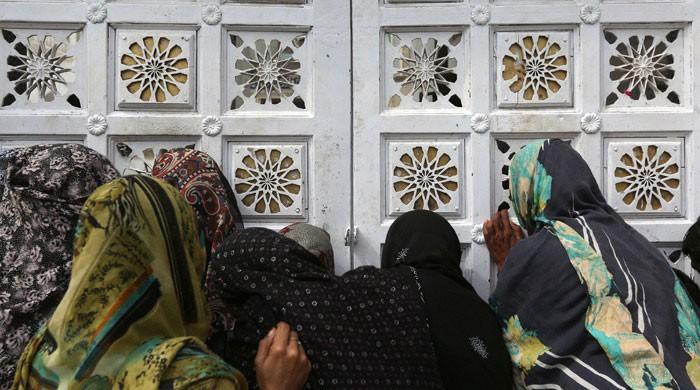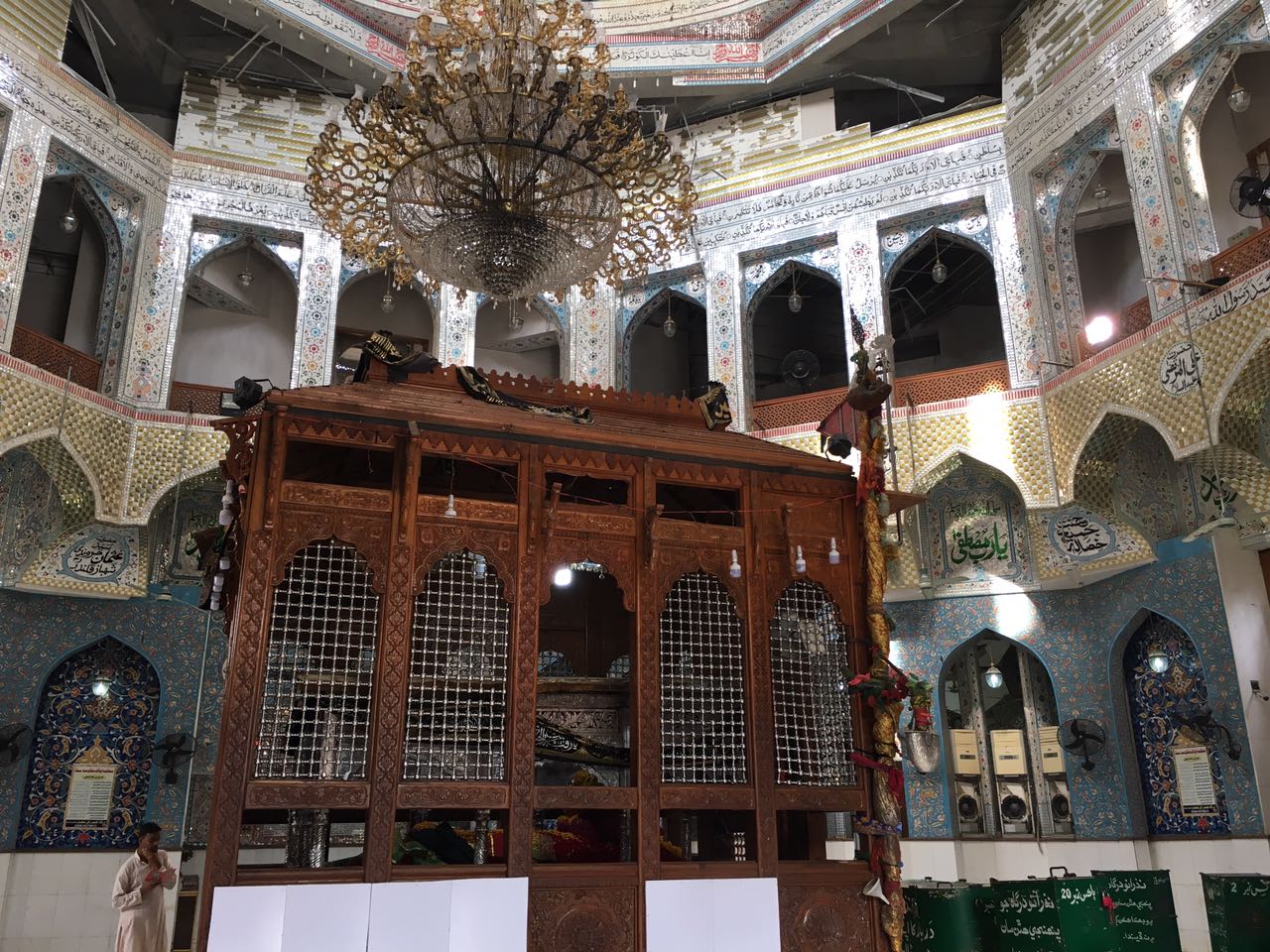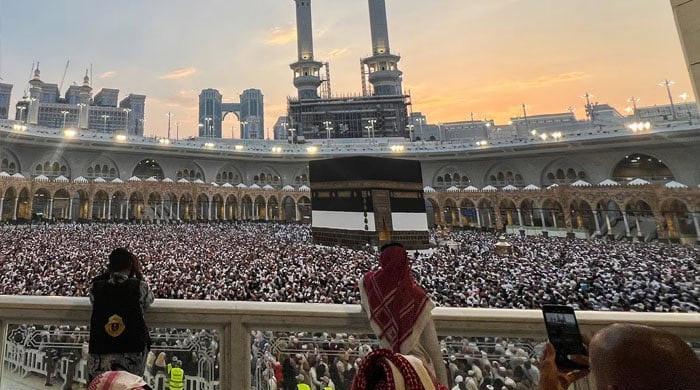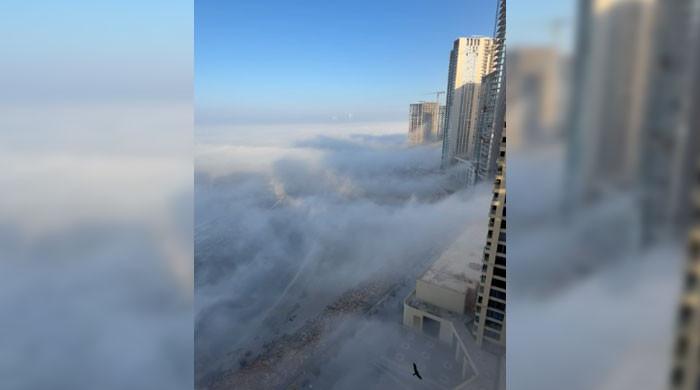Lal Shahbaz Qalandar shrine suicide bomber not yet identified
FIR has been registered against one suicide bomber, three facilitators
February 18, 2017

SEHWAN: Two days have passed but the identity of the suicide bomber who attacked the shrine of Lal Shahbaz Qalandar still remains a mystery.
At least 88 people were martyred on Thursday in the suicide bombing at the shrine when the dhamaal was underway. Over 300 people were also injured in the horrific bombing.
While talking to the media on Friday, Jamshoro SSP Tariq said a FIR has been registered against the suicide bomber and three facilitators. However, he added, they have gathered all the footages and were trying to connect them to find out who carried out the attack.
Investigation teams are busy analysing the forensic evidence collected from the site of the blast.
As per the CCTV footage available with Geo News, the bomber entered from a distance from where the CCTV camera was installed. The suicide attacker detonated the explosive device, before coming within the sight of the camera, hence could not be captured.

Unmanned Entrance
It was around 6:30 PM when the attacker entered through the golden gate of the shrine, investigation reports have revealed. Clad in a burqa, the bomber managed to make his way inside without being searched since there was no female security personnel present at the entrance. The golden gate is one of the main gates of the premises.
The suicide attacker managed to wade through the crowd without catching attention, more so because the main lights were turned off for the dhamaal, a ritual in which people are usually in a trance. Everyone's attention was focused on the dhamaal, even those who were not could not have spotted a suspicious person entering the main hall as a large number of people kept entering and leaving the area.
Inside, the hall was crammed with men and women during the dhamaal, with children running across while others tugging at their mothers' dupattas, not knowing death loomed moments away.
By the precision of movement traced in investigation reports, it appears the attacker had surveyed the area. The timing and spot also appeared pre-planned, as a large number of people from different social and economic backgrounds visit the shrine on Thursdays. Although the shrine is one of the most famous in the country, none of its main entry points were guarded, which made it easier for the terrorist to carry out his nefarious plan.











